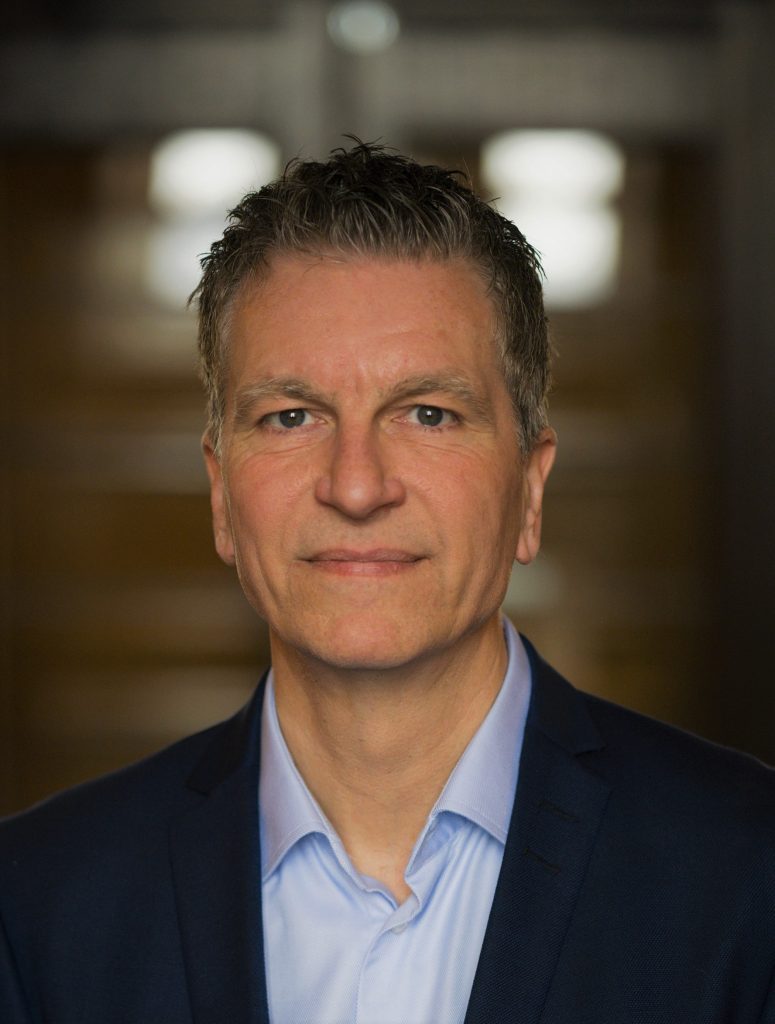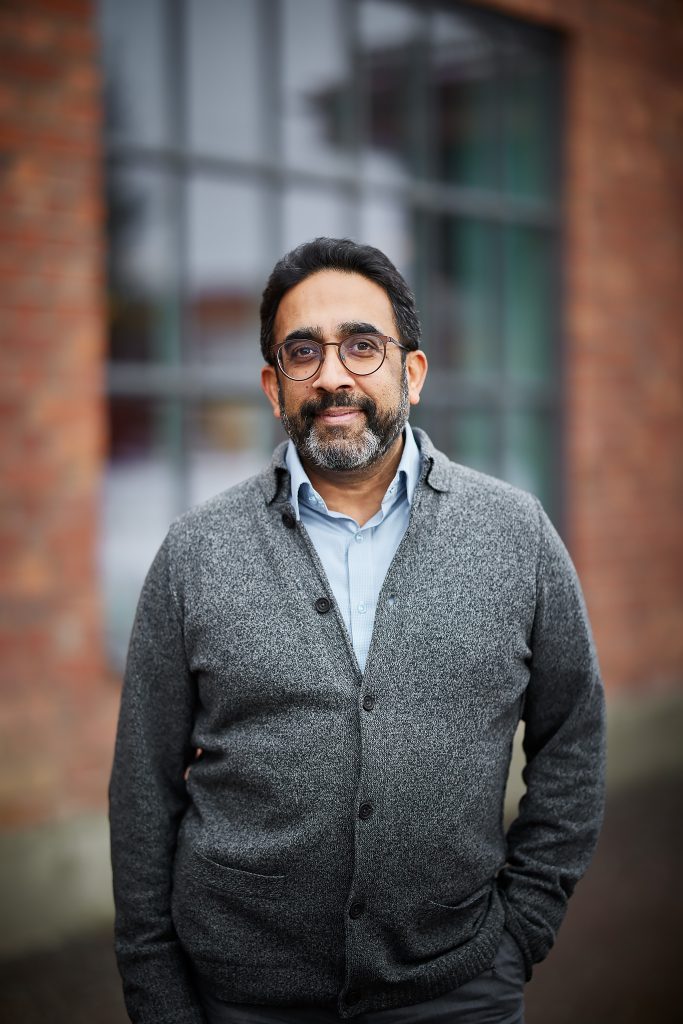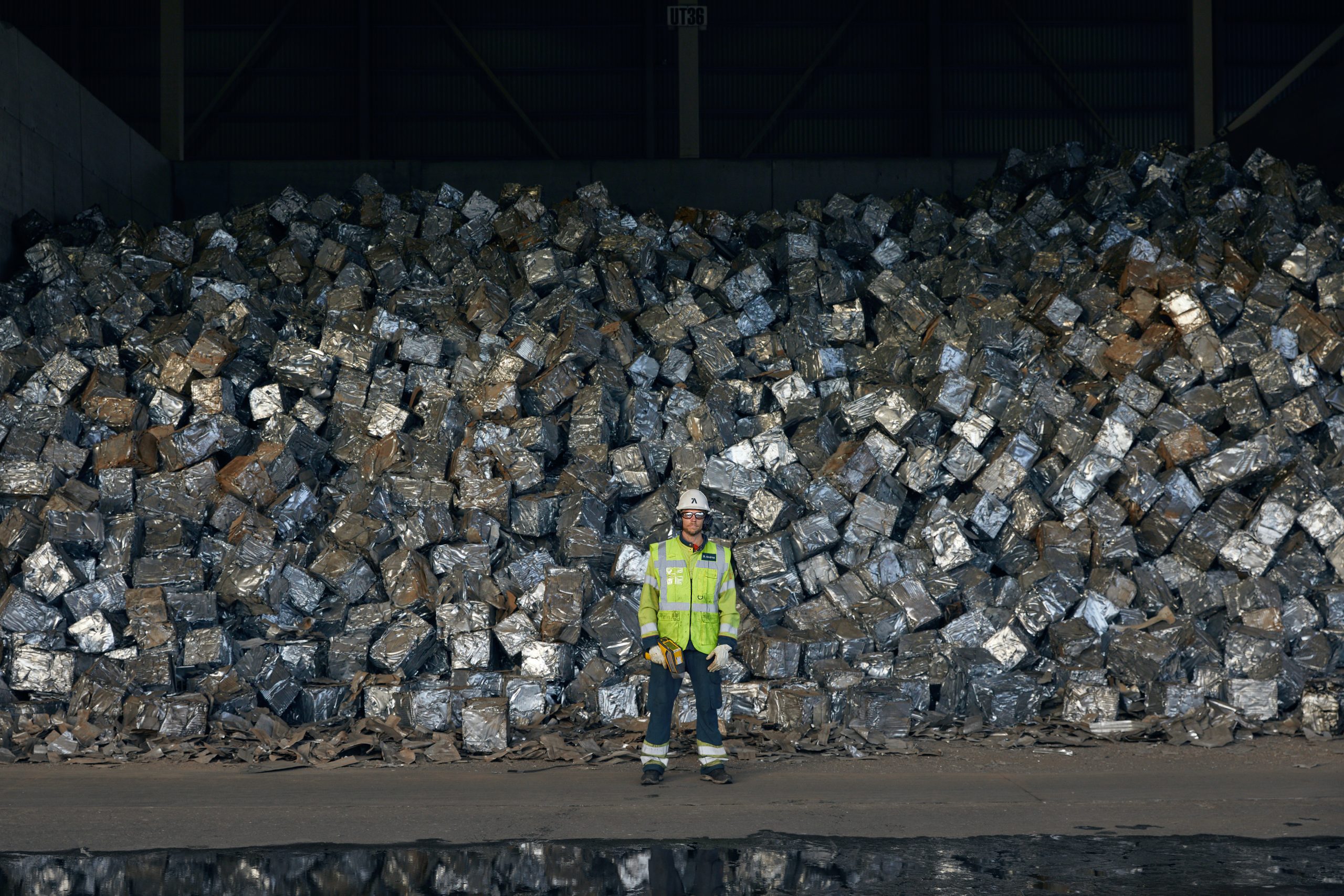Steel, renowned for its recyclability and versatility, holds a significant place in modern industry. For more than a century, Alleima has been a key player in stainless steel material production, showcasing the potential of steel’s circular economy. Today, with over 80% of its production sourced from recycled materials and powered by fossil-free electricity, Alleima is recognized for its commitment to sustainability. Unlike traditional steel manufacturing methods that rely on blast furnaces and emit large amounts of CO2, Alleima adopts a more sustainable approach by employing electric arc furnaces.
Alleima maintains a comparatively low climate footprint in its operations, attributable to the utilization of recycled steel in its production facilities. Emphasizing quality and material integrity, the company ensures that the recycled steel it employs closely aligns with the specifications of the finished products.
Embracing renewable energy
Alleima’s commitment to sustainability extends beyond material sourcing. The company operates its production facilities on fossil-free electricity, further minimizing its environmental impact. Additionally, Alleima continuously explores alternative energy sources such as biogas and hydrogen for the future to power its heating furnaces, paving the way for even greater carbon reductions. Already today Alleima uses biogas instead of gas.
“We are always exploring conversion to electric heating and new technologies such as hydrogen. The post-melting stage of steel production, particularly the hot processing of materials, accounts for the majority of CO2 emissions in our operations. Currently, while our Kanthal production is more or less completely electrified, our heating furnaces in our Alleima production units run on liquid propane gas or natural gas, supplemented by a small mix of biogas. Therefore, the opportunities for us to reduce CO2 emissions lie in shifting to electricity and/or fuels with lower carbon impact such as biogas or renewable hydrogen. However, it is crucial to ensure that any change in heating fuel does not compromise product properties or quality,” Mr. Sundström explained.
He also highlights the importance of what the company´s products can do. Alleima´s goal is to grow the product portfolio for applications for the green transition, electrification, energy efficiency and improved quality of life, at a faster pace than total growth and during 2023 those products grew 23 percent compared with 12% for the Group.

and Governance at Alleima
Advancement through specialized solutions
Kanthal, as a subsidiary of Alleima, operates within the Alleima Group, playing a vital role in delivering advanced resistance materials and electric heating solutions. While aligned with Alleima’s mission, Kanthal also maintains its distinct brand identity and market presence. Collaboration between the two spans strategic partnerships, research projects, and material supply, facilitating joint customer engagements and product development. Despite being a niche division within Alleima, Kanthal’s focus on specialized alloys and heating solutions complements Alleima’s broader operations, contributing to the organization’s overarching mission.
As a standout feature of Kanthal´s uniqueness, Dr. Chandrasekaran highlights Kanthal´s fully intergrated value chain. “We oversee everything from material production, including unique alloys and advanced materials, to application knowledge across various sectors such as steel, aluminum, and glass. This enables us to customize solutions precisely to each customer’s needs, leveraging patented materials with specific properties at the core. Few competitors offer such a complete range of capabilities, coupled with global coverage through our R&D centers and sales networks worldwide,” he explained.
“Focusing specifically on electric heating based on resistance heating materials, we emphasize several benefits. Compared to gas heating, electric heating is significantly more efficient, requiring less energy for the same output. It also offers precise temperature control, enhancing quality and maintenance. Additionally, with fossil-free electricity, emissions can be eliminated entirely, contributing to environmental sustainability. Furthermore, electric heating reduces noise pollution, creating a quieter and more conducive work environment. Ultimately, these advantages revolve around efficiency, with the potential to achieve substantial energy savings while addressing environmental concerns in a world where energy resources are finite,” he stressed.

Kanthal´s team is continuously exploring complementary technologies beyond their existing portfolio to provide comprehensive solutions tailored to customer needs. Additionally, they are considering potential expansions, such as exploring higher temperature applications, to address evolving industry demands and ensure they remain at the forefront of the industry.
Partnerships for progress
Buyback programs play a pivotal role in enhancing circularity within Alleima’s operations. These programs serve both as a customer service initiative and as a means to increase the proportion of recycled materials utilized by the company. Products manufactured by Alleima and installed at customer premises for up to two decades become eligible for buyback when customers opt to replace them with new products. This process enables Alleima to maintain precise records of the material’s composition.
A prime example of this buyback process is evident in the collaboration between Alleima, Welltec, and Rimeco. Welltec, a provider of robotic well solutions for the energy industry, utilizes Alleima’s high-alloy tubes. After usage, Welltec returns the tubes to Alleima, resulting in leftover scrap material. Rimeco, a recycling and waste management company, partners with Alleima and Welltec to handle the recycling of these state-of-the-art materials and proprietary designs.
Mr. Sundström emphasizes the effectiveness of this process, stating, “When we know exactly what product it is, we can optimize when re-melting. We get stainless steel back, but we also help the customer to have their used material removed. The customer, like us, wants to make the process as circular as possible.”
Once returned to Alleima, the material undergoes thorough analysis to determine its composition. Following smelting in the electric arc furnace and further processing in the AOD-converter to reduce carbon and sulfur, adjustments are made in the ladle furnace to achieve the desired composition. This meticulous process results in over 900 stainless-steel grades, each uniquely crafted for specific applications.
Dr. Chandrasekaran echoes Mr. Sundström´s sentiments on the significance of partnerships. “We firmly believe in the potential of technical solutions like electric heating to address industry challenges. The solutions are within reach; what is crucial now is their implementation and scalability. We encourage open dialogue with anyone who has ideas or obstacles related to electric heating. These insights not only inform our development efforts but also shed light on the challenges we must overcome,” he elucidated.
“Moreover, our commitment to collaboration runs deep. We recognize that we do not have all the answers, which is why we actively seek partnerships with like-minded organizations. Together, we can navigate the complexities of transformative change and drive innovation. It is through these collaborations that we can uncover optimal solutions to industry challenges and propel sustainable progress forward,” he remarked.
Transparency and accountability
To enhance transparency, Alleima is integrating Life Cycle Assessment (LCA) as a crucial tool for accurately quantifying the carbon footprint of its advanced materials and products. Through LCA, customers will receive meticulously verified data, empowering them on their own sustainability journeys.
LCA has emerged as a methodology for comprehensively evaluating environmental impacts throughout a product’s life cycle, from raw material extraction to market distribution. By conducting LCA studies, Alleima gains insights into various environmental impacts, including carbon footprint, facilitating informed decision-making.

Development Manager at Kanthal
“Transparency and accountability are indeed fundamental principles guiding our sustainability efforts at Kanthal and Alleima,” explains Dr. Chandrasekaran. “We recognize that to build trust and credibility with our customers, leading by example is essential. This involves not just advocating for solutions like electric heating but also showcasing our dedication to sustainability in our operations. While achieving complete emissions reduction may take time, we have a clear plan to identify and mitigate our main sources of emissions gradually. Transparency is key in how we calculate and communicate our carbon footprint. By openly sharing this information, we hold ourselves accountable and empower stakeholders to make informed decisions,” he underlined.
As a further recognition of its sustainable efforts, Alleima was recently awarded a silver medal by EcoVadis, a renowned provider of corporate sustainability assessments, in recognition of its outstanding sustainability performance. This places Alleima in the 91st percentile, indicating that their results surpass those of 91% of the companies evaluated by EcoVadis. “The silver medal serves as a significant validation of our ongoing sustainability endeavors,” concluded Mr. Sundström.
Mark your calendar!
On June 26 and 27 visit stand D08 at the Green Steel World Expo & Conference in Essen and use this unique window of opportunity to engage with the experts from Alleima. Additionally, you will get the opportunity to listen to Dr. Dilip Chandrasekaran present at the GSW stage on behalf of Alleima.

